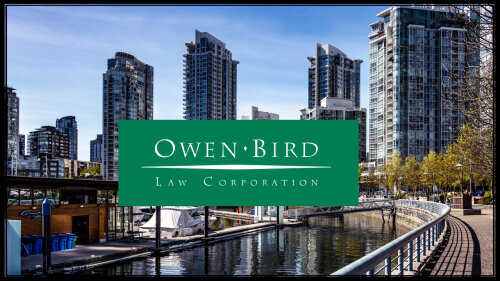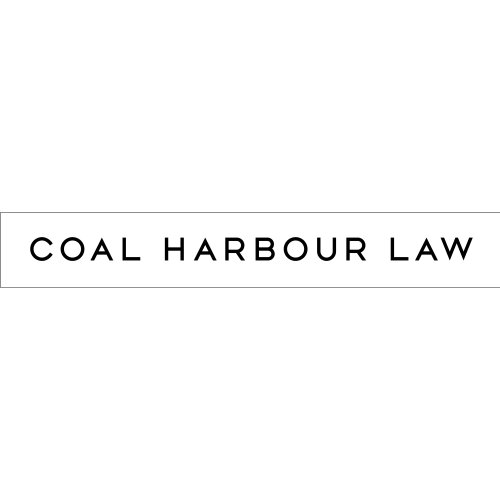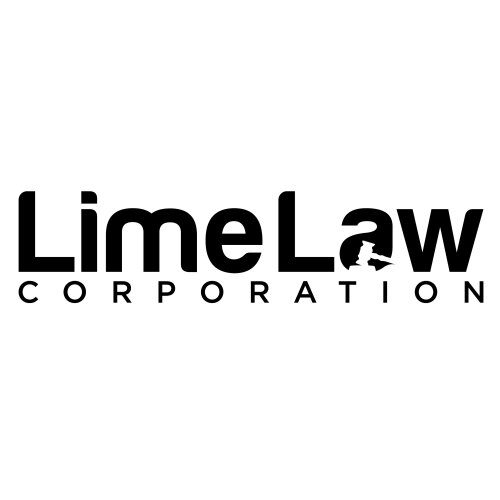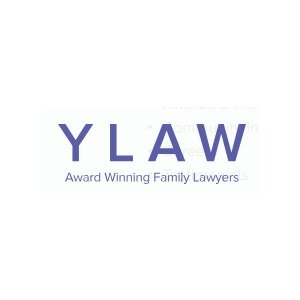Best Corporate Governance Lawyers in Vancouver
Share your needs with us, get contacted by law firms.
Free. Takes 2 min.
List of the best lawyers in Vancouver, Canada
About Corporate Governance Law in Vancouver, Canada
Corporate governance refers to the system of rules, practices, and processes by which a company is directed and controlled. In Vancouver, corporate governance law outlines how businesses - whether public, private, or non-profit - are managed and overseen to align the interests of shareholders, directors, management, and other stakeholders. This legal discipline addresses topics such as director responsibilities, shareholder rights, financial disclosure, transparency, and the ethical conduct of business affairs. The aim is to promote accountability and foster trust among investors, employees, and the public, while supporting local economic growth and stability.
Why You May Need a Lawyer
There are several situations in which individuals or companies in Vancouver may require legal assistance regarding corporate governance. Common reasons include:
- Assistance with incorporating a business and establishing governance frameworks
- Ensuring compliance with federal and provincial business laws and regulations
- Drafting or reviewing bylaws, shareholder agreements, and board resolutions
- Directors and officers seeking clarity on their legal duties, potential liabilities, and indemnities
- Disputes involving shareholders, directors, or management
- Responding to regulatory investigations or compliance audits
- Guidance during mergers, acquisitions, or significant structural changes
- Whistleblower situations or handling conflicts of interest
- Implementing risk management and corporate social responsibility initiatives
Corporate governance lawyers provide advice that ensures your organization meets its legal obligations and reduces exposure to liability.
Local Laws Overview
Corporate governance in Vancouver is shaped by a collection of federal and provincial laws, as well as best practices promoted by regulatory authorities:
- British Columbia Business Corporations Act (BCBCA): This provincial law sets out key obligations for companies incorporated in British Columbia, including director duties, shareholder meetings, records management, and more.
- Canada Business Corporations Act (CBCA): Applicable to federally incorporated companies operating in British Columbia, the CBCA details requirements for director conduct, disclosure, takeovers, and reporting.
- Securities Legislation: Companies listed on securities exchanges must comply with rules from the British Columbia Securities Commission and, if interlisted, national guidance from the Canadian Securities Administrators.
- Corporate Social Responsibility (CSR): While not strictly legislated, many Vancouver companies voluntarily follow best practices around environmental, social, and governance (ESG) reporting.
- Entities are also subject to anti-money laundering, privacy, and employment laws that intersect with governance.
Understanding the interplay between these laws is critical for maintaining good standing, avoiding penalties, and achieving sustainable organizational growth.
Frequently Asked Questions
What is the role of a director under BC corporate governance law?
Directors are responsible for supervising the management of the company’s business and affairs. They must act in good faith, in the best interests of the company, and exercise care, diligence, and skill as set by the law.
Are shareholder agreements mandatory in Vancouver?
No, shareholder agreements are not mandatory but are highly recommended. They help set out the rights, obligations, and dispute resolution mechanisms among shareholders, reducing future conflicts.
How often must a company hold an annual meeting?
Under both the BCBCA and CBCA, companies must typically hold an annual general meeting of shareholders within 15 months of the previous meeting. This ensures regular review and accountability.
What are the consequences of failing to comply with corporate governance requirements?
Non-compliance can result in penalties, regulatory sanctions, director liability, damaged reputation, and even loss of corporate status or dissolution in severe cases.
Is it necessary to keep meeting minutes and other records?
Yes, corporate law mandates that companies maintain proper records, including minutes of meetings, resolutions, accounting records, and registers of shareholders and directors.
When is disclosure to shareholders required?
Disclosure is required during annual meetings, major transactions, changes in the board, or when material events occur that could affect shareholders’ interests.
Can directors be personally liable for company actions?
Yes, in some situations, such as breach of duties, unpaid employee wages, or certain regulatory violations, directors can face personal liability.
What are the key differences between BC and federal corporate law?
The biggest differences involve incorporation procedures, director residency requirements, reporting obligations, and some rights of shareholders. Selecting the appropriate jurisdiction depends on your company’s needs.
How are conflicts of interest handled under corporate governance law?
Directors and officers must disclose any conflicts of interest and usually refrain from voting on related matters to ensure unbiased decision-making.
What are best practices for good corporate governance?
Best practices include maintaining clear corporate policies, regular board evaluations, transparent reporting, strong internal controls, and ongoing training for directors and management.
Additional Resources
Several resources exist for those seeking guidance on corporate governance in Vancouver:
- British Columbia Securities Commission (BCSC): Provides guidance for public companies and securities compliance.
- Business Corporations Branch, BC Ministry of Finance: Offers resources and forms for BC-incorporated companies.
- Canadian Bar Association - BC Branch: Publishes articles, policy papers, and organizes seminars related to corporate governance.
- Vancouver Board of Trade: Networking and educational opportunities for business leaders.
- Legal clinics and business incubators: Provide initial legal guidance for startups and non-profit organizations.
Next Steps
If you believe you may need legal advice regarding corporate governance in Vancouver, consider these steps:
- Define your specific corporate governance question or issue clearly.
- Review your existing corporate documents and note relevant details or concerns.
- Contact a lawyer who specializes in corporate law or governance for an initial consultation.
- Prepare to provide background information, so your legal advisor can offer accurate, tailored guidance.
- Stay informed by accessing reputable resources and regularly reviewing your company's compliance with local laws and best practices.
An experienced Vancouver corporate governance lawyer can help you identify risks, implement best practices, and avoid costly legal problems, providing peace of mind for your board, shareholders, and company as a whole.
Lawzana helps you find the best lawyers and law firms in Vancouver through a curated and pre-screened list of qualified legal professionals. Our platform offers rankings and detailed profiles of attorneys and law firms, allowing you to compare based on practice areas, including Corporate Governance, experience, and client feedback.
Each profile includes a description of the firm's areas of practice, client reviews, team members and partners, year of establishment, spoken languages, office locations, contact information, social media presence, and any published articles or resources. Most firms on our platform speak English and are experienced in both local and international legal matters.
Get a quote from top-rated law firms in Vancouver, Canada — quickly, securely, and without unnecessary hassle.
Disclaimer:
The information provided on this page is for general informational purposes only and does not constitute legal advice. While we strive to ensure the accuracy and relevance of the content, legal information may change over time, and interpretations of the law can vary. You should always consult with a qualified legal professional for advice specific to your situation.
We disclaim all liability for actions taken or not taken based on the content of this page. If you believe any information is incorrect or outdated, please contact us, and we will review and update it where appropriate.
















